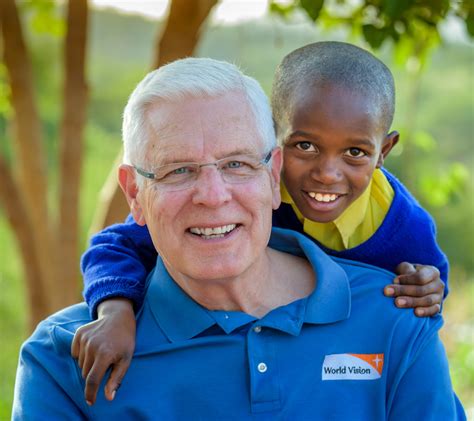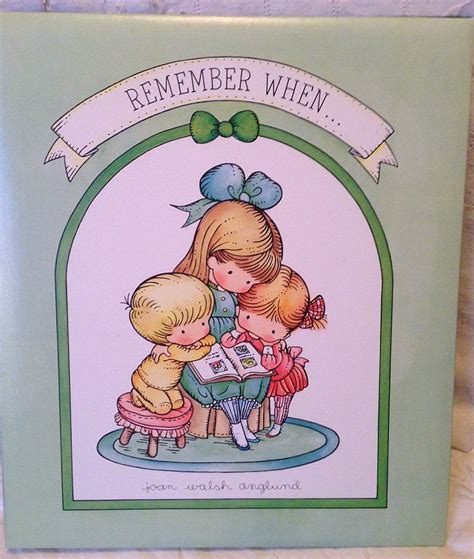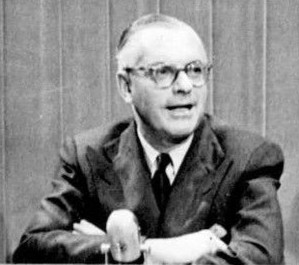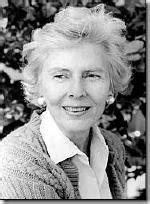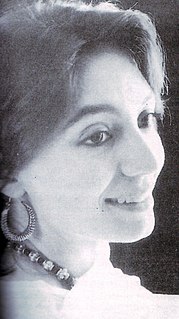Top 224 Widows And Orphans Quotes & Sayings - Page 4
Explore popular Widows And Orphans quotes.
Last updated on April 16, 2025.
In the past seven years of love-making he had heard the words "I love you" so many times: from the mouths of widows and children, from prostitutes, family friends, travelers, and adulterous wives. Women said "I love you" without his ever speaking. "The more you love someone," he came to think, "the harder it is to tell them." It surprised him that strangers didn't stop each other on the street to say "I love you".
When I was little I knew my father had been an orphan and had lived in an orphanage. I was curious, but my father wouldn't satisfy my curiosity. He told only one story about the orphanage, and that was of sneaking out and buying candy, which he sold to other orphans. He said he had a pretty good business going - till he was busted! I guess he told that anecdote because he was the hero of it and I suspect he was rarely the hero as a child, more often the victim. There's a photo of the actual orphanage on my website, and you can see it's a forbidding looking place.
The global HIV/AIDS epidemic is an unprecedented crisis that requires an unprecedented response. In particular it requires solidarity - between the healthy and the sick, between rich and poor, and above all, between richer and poorer nations. We have 30 million orphans already. How many more do we have to get, to wake up?
Every publisher or agent I've ever met told me the same thing - that Irish readers don't want to read about the bad old days of the Troubles; neither do the English and Americans - they only want to read about the Ireland of The Quiet Man, when red-haired widows are riding bicycles and everyone else is on a horse.
The peasant of early modern France inhabited a world of step-mothers and orphans, of inexorable, unending toil, and of brutal emotions, both raw and repressed.The human condition has changed so much since then that we can hardly imagine the way it appeared to people whose lives really were nasty, brutish, and short. This is why we need to reread Mother Goose.
She's gone. Been gone for ages. They split up right after you left. That's why the grass out front started growing again." "He's got a new girlfriend?" she said quietly. "Thank god. You must be happy." "Yeah. He does. It's a relief. She's a lot nicer. But then, your average angry snake is nicer than Fiona. I'm sure she's happier wherever she is now, burning orphans or whatever she does with her time.
These two guys [Donald Trump and Chris Christie] kinds find each other. They love each other. They were playing let`s spend the night together when I turned the TV in the hotel today. I was like oh, my goodness.But it`s like the worst buddy movie. They degrade women. They steal candy from orphans. They mock the disabled. They pick on teachers. It`s frightening to watch.
After the abrupt death of my mother, Jane, on Sept. 5, 1991, of a disease called amyloidosis, my dad took up golf at 57. He and my mother had always played tennis - a couples' game of mixed doubles and tennis bracelets and Love-Love. But in mourning, Dad turned Job-like to golf, a game of frustration and golf widows and solitary hours on the range.
In a study we did of bereavement, we found that rather impressive numbers of widows and widowers had not simply gone back to their pre-loss functioning, but grown. This was due to a kind of increased existential awareness that resulted from this confrontation with the death of another. And I think it brought them in touch with their own death, so they began to experience a kind of preciousness to life that comes with an experience of its transiency.
If only 7 percent of the 2 billion Christians in the world would care for a single orphan in distress, there would effectively be no more orphans. If everybody would be willing to simply do something to care for one of these precious treasures, I think we would be amazed by just how much we could change the world.
I am certain that over the course of your own life, you have noticed that people's rooms reflect their personalities. In my room, for instance, I have gathered a collection of objects that are important to me, including a dusty accordion on which I can play a few sad songs, a large bundle of notes on the activities of the Baudelaire orphans, and a blurry photograph, taken a very long time ago, of a woman whose name is Beatrice. These are items that are very precious and dear to me.
Let the tears which fell, and the broken words which were exchanged in the long close embrace between the orphans, be sacred. A father, sister, and mother, were gained, and lost, in that one moment. Joy and grief were mingled in the cup; but there were no bitter tears: for even grief arose so softened, and clothed in such sweet and tender recollections, that it became a solemn pleasure, and lost all character of pain.
Can we who have had the joy of knowing that we are not orphans, that we have a Father, be indifferent to this city which asks of us, perhaps even unwittingly, without being aware of it, a hope that will help it look to the future with greater confidence and serenity? We cannot remain indifferent. . . . Words without witness are hot air. Words do not suffice. It must be the true witness that Paul speaks of.
When we adopt—and when we encourage a culture of adoption in our churches and communities—we’re picturing something that’s true about our God. We, like Jesus, see what our Father is doing and do likewise (John 5:19). And what our Father is doing, it turns out, is fighting for orphans, making them sons and daughters.
The President's policy proposal, known as 'chained CPI,' would re-calculate the cost of living for Social Security beneficiaries. That new number won't keep up with inflation on things like food and health care -- the basics that we need to live. In short, 'chained CPI' is just a fancy way to say 'cut benefits for seniors, the permanently disabled, and orphans.'
If we believe that humanity may transcend tooth and claw, if we believe divers races & creeds can share this world as peaceably as the orphans share their candlenut tree, if we believe leaders must be just, violence muzzled, power accountable & the riches of the Earth & its Oceans shared equitably, such a world will come to pass.
The unfortunate are not as miserable as the world imagines. That urchins, the handicapped, orphans, prisoners and others are much happier than people think. And that language is a trap, that a dark evolutionary force has created languages to limit human thought. That writers are overrated fools. That all religions come from ancient comic writers. And the ultimate goal of comics is same as the purpose of humanity – to break free from language.
With the Holy Mother as the centre of inspiration, a Math is to be established on the eastern bank of the Ganga. . . . On the other side of the Ganga a big plot of land will be acquired, where unmarried girls or Brahmacharini widows will live; devout married women will also be allowed to stay now and then. Men will have no concern with this Math.
They tell about a fifteen-year-old boy in an orphans' home who had an incurable stutter. One Sunday the minister was detained and the boy volunteered to say the prayer in his stead. He did it perfectly, too, without a single stutter. Later he explained, "I don't stutter when I talk to God. He loves me."
The United States, which has been called the home of the persecuted and the dispossessed, has been since its founding an asylum for emotional orphans. For over three hundred years, refugees from political oppression, religious persecution, famine, poverty, and a rigid class system which limited educational and economic opportunities have been leaving their native villages and cities and coming to the United States in search of freedom and a better life.
No woman is really an insider in the institutions fathered by masculine consciousness. When we allow ourselves to believe we are, we lose touch with parts of ourselves defined as unacceptable by that consciousness; with the vital toughness and visionary strength of the angry grandmothers, the fierce market women of the Ibo's Women's War, the marriage-resisting women silk workers of pre-Revolutionary China, the millions of widows, midwives, and the women healers tortured and burned as witches for three centuries in Europe.
Hwang Jung-eun is one of the brightest stars of the new South Korean generation - she's Han Kang's favourite, and the novel we're publishing scooped the prestigious Bookseller's Award, for critically-acclaimed fiction that also has a wide popular appeal. She stands out for her focus on social minorities - her protagonists are slum inhabitants, trans women, orphans - and for the way she melds this hard-edged social critique with obliquely fantastical elements and offbeat dialogue.
To me, my husband was my son's murderer. He was also my daughter's molester. A parasite nibbling on the Holy Book, he was Lucifer, holding me by the throat and driving me to sin every night. He was Bhai's destroyer, Amma Sain's tormentor, Ma's humbler and the people's exploiter. He was the rapist of orphans and the fiend that fed on the weak. But over and above all this, he was known to be the man closest to Allah, the one who could reach Him and save us.
It has been hard to muster the resources to support fledgling democracies and to intervene on behalf of the most desperate. The AIDS orphans in Uganda, the refugee fleeing Zimbabwe, the young woman who has been trafficked into the sex trade in Southeast Asia. It has been hard, yet this assistance together with the compassionate work of private charities, people of conscience and people of faith, has shown the soul of our country.
It was the day of the worms. That first almost-warm, after-the-rainy-night day in April, when you bolt from your house to find yourself in a world of worms. They were as numerous here in the East End as they had been in the West. The sidewalks, the streets. The very places where they didn't belong. Forlorn, marooned on concrete and asphalt, no place to burrow, April's orphans.
Opera was an enormous part of my childhood. My parents were both opera buffs, and they met in the box seat of an opera performance. And I also was a boy soprano, so before puberty hit, I was onstage playing a wide variety of orphans and urchins in all sorts of operas, and the sheer melodrama of their stories was just always appealing to me.
In some states, it is illegal to turn down a same-sex couple when you're placing children for adoption. That's discrimination. But in the Catholic church, the sacrament of marriage is defined officially as the union of a man and a woman. So a Catholic adoption agency is torn between its faith doctrine and what it sees as a faith obligation to help orphans.
Dear Brothers and Sisters, Never resort to war! Never war! Above all, I think of all the children who are robbed of their hope for a better life and a decent future. Killed children, wounded children, mutilated children, orphans, children who play with remnants of war, instead of toys. Children who don't know how to smile. Please stop! I ask you with all my heart. It's time to stop. Stop it please!
Your God loves your people and hates mine; he folds his strong arms lovingly around the white man and leads him as a father leads his infant son, but he has forsaken his red children; he makes your people wax strong every day, and soon they will fill the land; while my people are ebbing away like a fast-receding tide, that will never flow again. The white man's God cannot love his red children or he would protect them. They seem to be orphans who can look nowhere for help.
Where lies the final harbor, whence we unmoor no more? In what rapt ether sails the world, of which the weariest will never weary? Where is the foundling’s father hidden? Our souls are like those orphans whose unwedded mothers die in bearing them: the secret of our paternity lies in their grave, and we must there to learn it.
I’ve always wanted to be liked. It grieved me that I was treated with indifference. Left an orphan by Fortune, I wanted—like all orphans—to be the object of someone’s affection. This need has always been a hunger that went unsatisfied, and so thoroughly have I adapted to this inevitable hunger that I sometimes wonder if I really feel the need to eat. Whatever be the case, life pains me.
I think we're creating a situation that's incredibly dangerous. There's a lot of chat at the moment about the war on terror and whilst there are many causes for acts of terrorism, what kind of society are you creating if you allow civil society in Africa to die and create millions upon millions of orphans? Where are they going to go? What kind of cults, what kind of militias, what's going to happen? The accession of violence in those countries, the possibility of that, to me is very terrifying.
At first it was the incomes of corporations, then of rich citizens, then of well-provided widows and opulent workers, and finally the wealth of housemaids and the tips of waitresses. This is all in line with the ability to pay doctrine. The poor, simply because there are more of them, have more ability to pay than the rich.
In the time since the Baudelaire parents' death, most of the Baudelaire orphans' friends had fallen by the wayside, an expression wich here means "they stopped calling, writing, and stopping by to see any of the Baudelaires, making them lonely". You and I, of course, would never do this to any of our grieving acquaintances, but it is a sad truth that when someone has lost a loved one, friends sometimes avoid the person, just when the presence of friends is most needed.
What kind of victory is it when someone is left defeated? What difference does it make to the dead, the orphans, and the homeless, whether the mad destruction is wrought under the name of totalitarianism or the holy name of liberty and democracy. What is a war criminal? Was not war itself a crime against God and humanity, and, therefore, were not all those who sanctioned, engineered and conducted wars, war criminals? The weak can never forgive. Forgiveness is the attribute of the strong. Non-cooperation with evil is a sacred duty.
I did a lot of reading of first person accounts from Koreans and combatants and aid workers. And I spoke to relatives. A lot of wonderful photographs were made available to me from that period - 1950-1956 - and those were given to me by a Korean newspaper in Seoul. Ruined villages, refugees streaming through a river valley, GI's and orphans and orphanages, those tiny details that you can only see in a picture.
Perhaps there are those who are able to go about their lives unfettered by such concerns. But for those like us, our fate is to face the world as orphans, chasing through long years the shadows of vanished parents. There is nothing for it but to try and see through our missions to the end, as best we can, for until we do so, we will be permitted no calm.
Remember that in ascending to the Father You could not leave us orphans; And in making yourself a prisoner on earth You knew to veil all your divine rays. But the shadow of your veil is luminous and pure. Living Bread of faith, Celestial Food, O mystery of love! My daily Bread, Jesus, is You!... Jesus, it is you who, despite the blasphemies Of the enemies of the Sacrament of love, It is you who want to show how much you love me, Since you make your dwelling in my heart. O Bread of the exiled! Holy and Divine Host, It is no longer I who live, but I live on your life




